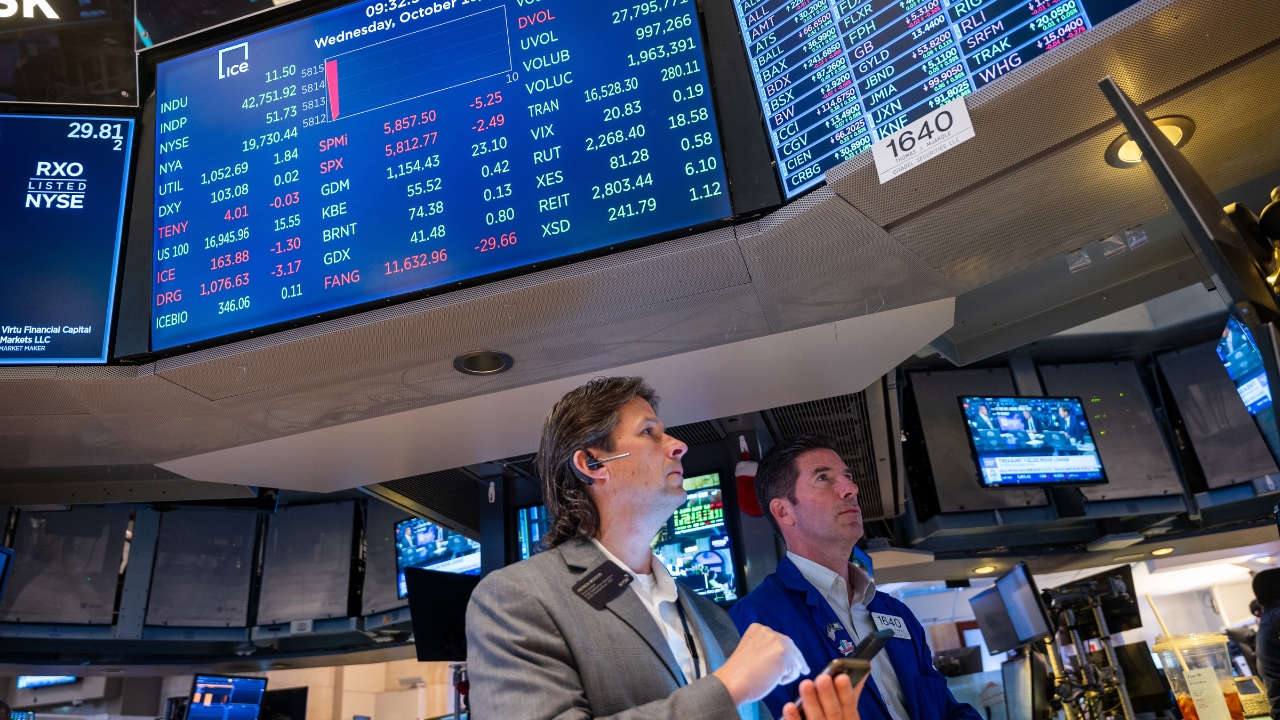The Dow Jones and S&P 500 capped off the week with record-high closes on Friday, buoyed by a surge in Netflix shares and a rally in technology stocks. The Nasdaq also ended the day in positive territory, contributing to the upbeat mood in the markets.
All three major U.S. stock indexes not only achieved fresh highs but also extended their winning streak to six consecutive weeks, the longest since late 2023. The S&P 500 climbed 0.9% over the week, while the Nasdaq and Dow Jones posted weekly gains of 0.8% and 1%, respectively.
Netflix stole the spotlight with an 11.1% jump, reaching an all-time closing high after smashing Wall Street’s subscriber growth expectations. The streaming giant’s bullish outlook for continued growth through year-end added fuel to the tech-led rally. Gains were also seen across the “Magnificent Seven” tech stocks that have powered much of this year’s market ascent. Apple rose 1.2% following a surge in iPhone sales in China, and chipmaker Nvidia edged up 0.8% after BofA Global Research increased its price target.
The rise in Netflix helped boost the communication services sector by 0.9%, making it the top-performing group among the S&P 500’s 11 sectors. The information technology sector also benefited, gaining 0.5%.
David Waddell, CEO of Waddell & Associates, summed up the market mood, saying, “It’s kind of the ‘what’s not to like’ market,” pointing to strong earnings, positive economic indicators, and signs of disinflation.
The Dow ended the day with a modest 0.09% gain, marking its fifth record high in the past six sessions. However, its advance was held back by a 3.1% drop in American Express after the credit card company’s quarterly revenue fell short of forecasts.
While the financial sector has mostly seen positive earnings, the S&P Banks index dipped 0.1%, snapping a five-day winning streak. Overall, robust earnings reports and solid economic data have driven the upward momentum in the major indexes in recent weeks.
That said, high valuations—particularly the S&P 500’s forward price-to-earnings ratio of nearly 22—coupled with high expectations for corporate earnings and potential uncertainty around the upcoming U.S. presidential election, could make the market susceptible to a downturn. Still, Waddell remains optimistic, noting that “strong corporate earnings could offset any political or valuation concerns.”
Small-cap stocks have also attracted attention lately, with the Russell 2000 and S&P Small Cap 600 outperforming the larger indexes during the week, though they saw slight declines on Friday.
Energy was the sole laggard among the sectors, down 0.4% due to a slump in oil prices. The energy index fell 2.6% for the week, as U.S. crude prices tumbled 7%, driven by worries over China’s demand and tensions in the Middle East. SLB dropped 4.7% after disappointing earnings, dragging down other oilfield service providers like Baker Hughes and Halliburton.
In the health sector, CVS Health took a 5.2% hit following the announcement that company veteran David Joyner would replace Karen Lynch as CEO, and the company withdrew its profit outlook for 2024. This news also put pressure on other health insurers, with Cigna and Elevance Health suffering losses.
Trading volume on U.S. exchanges totaled 10.62 billion shares, below the 20-day average of 11.56 billion, reflecting slightly muted trading activity to close out the week.
Hello guys! My name is David Wilson, and I'm a passionate stock market enthusiast and the founder of 9to5Stock. With a deep understanding of market dynamics and a commitment to empowering others, I share valuable insights, strategies, and updates to help investors like you make informed decisions and achieve financial success. Welcome to our community, and let's thrive together in the world of investing!
